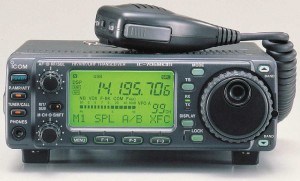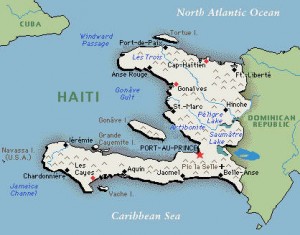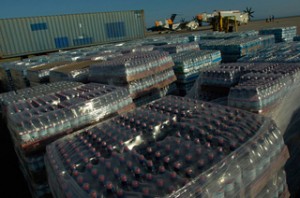Sean Casey of the International Medical Corps, writing on November 7th, at the Poverty Matters Blog, a feature of The Guardian (UK).
I look forward to the day we can all celebrate the defeat of cholera in Haiti. Yet, one year after the first cases appeared, many in the international community are rushing to this conclusion too soon. Thanks to the efforts of NGOs and funding from international donors, such as the humanitarian aid department of the European Commission (Echo), case fatality rates have dropped significantly since the early days of Haiti’s cholera epidemic.
However, this success is fragile – indeed, since the end of August and the arrival of the rainy season, the number of cases has risen again, particularly in Haiti’s Sud department, where International Medical Corps (IMC) is the main cholera response agency. If NGOs are not adequately resourced to provide critical cholera prevention and treatment services, and to support the Haitian government in the areas where it is able to provide services, cases will rise and more people will die.
It is now a year since those first cholera cases emerged, and encouraging statistics have caused some donor agencies to declare the emergency phase over. But this remains an emergency that has only temporarily abated. If funding is cut and services closed, infection rates will rise and the relatively low fatality rates that have been achieved thanks to NGO interventions will quickly increase.
Cholera thrives where water systems are weak and sanitation poor. A history of poverty, natural disaster, neglected public water and sanitation systems, and under-resourced health infrastructure has magnified the impact of cholera in Haiti. It is estimated that 80% of Haitians do not have access to latrines and more than half of the population lacks access to safe drinking water.
The US government’s health and safety agency, the Centres for Disease Control and Prevention (CDC), has called these conditions a “perfect storm for a massive epidemic of cholera”. As of 14 October, about a year from the start of the epidemic, Haiti’s ministry of health reported 473,649 cases of cholera and 6,631 deaths attributed to it across all 10 of the country’s departments. Haiti is experiencing one of the worst cholera outbreaks in recent memory, and because this epidemic followed the 2010 earthquake and decades of political instability, it has limited capacity to mount a home-grown response.
We will only be able to declare victory over cholera when Haitians have access to toilets and safe water, the government has the resources and the capacity to manage cholera (and Haiti’s other health concerns) on its own and reliance on donor funding and NGO partners is no longer needed. Until then, donors and governments must acknowledge that cholera is still an emergency and respond accordingly. Haiti is like a patient on life support – if donors pull the plug now, the patient will not survive on its own.
Cholera in Haiti: still an emergency by Sean Casey of the International Medical Corps
Some of our earlier posts about cholera:
Cholera outbreak(s) in Iraq – from Effect Measure
Three Cases of Cholera Confirmed by City Officials – NYTimes.com


